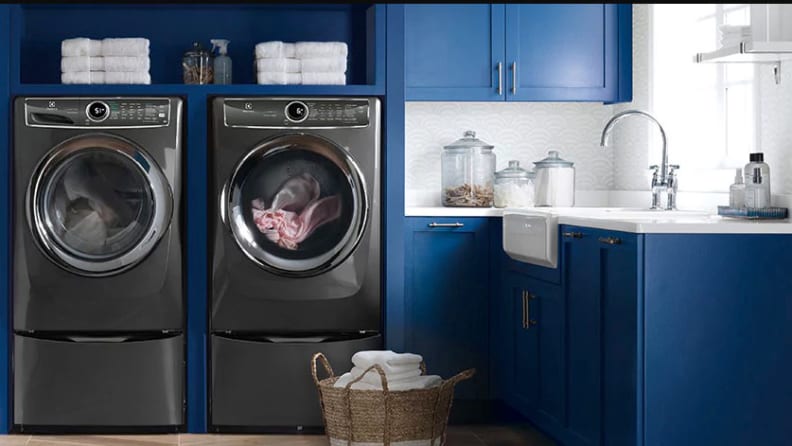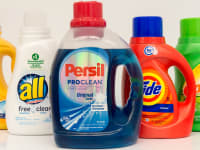Hot dryers may be damaging your clothes—here's what to do
Protect yourself against scorched clothes and house fires.
Products are chosen independently by our editors. Purchases made through our links may earn us a commission.
It’s great to be able to toss soaking wet clothes into the dryer and come back later to unload them, all fluffy and dry. But when a dryer runs too hot, it can be bad news for clothes, causing increased wear and tear.
To protect your clothes, you also need to care for your dryer. Regular maintenance and the right dryer settings will keep your clothes looking like new.
Aren’t dryers supposed to be hot?
Yes, dryers can be hot. Dryers work by pulling air in, heating it, and tumbling wet clothes through the warm air. Most dryers get rid of moisture by venting it to the outside.
The best dryers are capable of drying your clothes quickly at a temperature that is hot, but not so hot that it scorches or damages them. Temperatures under 150°F are gentle enough to get the clothes dry without causing harm.
In our testing lab, we measured peak dryer temperatures as low as 106°F and as high as 188°F. These temperature extremes are rare. The average top temperature for all the machines we’ve tested is close to the recommended 150°F.
Why is my dryer running too hot?
We checked in with the major laundry brands and they all agree: Dryers are not designed to run at temperatures greater than 150°F. The brands claim to be as concerned as we are about fabric care. So, since your dryer was not designed to run hotter, here are some other reasons a dryer might overheat, along with some regular maintenance you can do to prevent it.
1. Restricted air flow
According to GE Appliances, if air flow is blocked, a dryer’s internal temperature can rise, potentially causing a house fire.
Fire risk is a good reason to clean out your dryer’s lint filter every time you run a load.
Because some particles get past the filter, you also need to learn how to clean the vent and do it at least once a year.
What you find in the vent might surprise you. We’ve heard of cases where birds blocked a vent by building a nest inside.
2. Thermostat issues
Dr. Duct, a company that cleans dryer vents, says that if a dryer’s thermostat malfunctions, the dryer can run too hot. The company’s site says that replacing the thermostat is a relatively inexpensive fix. If you’re ambitious, you might try to do it yourself.
3. A malfunctioning heating element
Home design site Hunker says that if the heating element has shifted or warped, the dryer may heat up too much and too quickly. If that’s the case, your dryer needs a new heating element and you may have to schedule a repair.
How can I protect my laundry from dryer damage?
“Tumble dry low” isn’t just a care label suggestion, it’s a best practice. Regardless of the cycle you select, use the control panel to turn the heat settings to low. Aside from cleaning out the lint filter every single time, this is the easiest way to take care of your clothes.

The Electrolux EFME627UTT is the best dryer we've tested, and it preserves clothes by drying them gently.
Which dryers run coolest?
Check our roundup of the best dryers to get a list of dryers that scored well on our performance tests. Then, choose a dryer that strikes the right balance between speedy cycles and cooler temperatures. Your clothes will thank you.
More on clothes dryers
- The Best Dryers We've Tested
- The Best Steam Dryers We've Tested
- The Best Large-capacity Dryers We've Tested
- The Best Ventless Dryers We've Tested
- Everything you need to know about ventless dryers
- The Best Washer-Dryer Combos We've Tested
- The Best Washer and Dryer Sets We've Tested
- 8 things to consider before buying a new dryer
- Not Normal— 7 other laundry settings and when to use them
- 9 Ways to Keep Your Washer and Dryer Healthy


